Happy Thursday. A bit of lighter news in a heavy week: A Welsh town official resigned last week after rumors spread that he is in fact Banksy, the internationally known—or rather, unknown—anonymous street artist.
“I’m not Banksy,” he insisted, which seems like exactly what Banksy would say.
Quick Hits: Today’s Top Stories
Oklahoma Gov. Kevin Stitt on Wednesday signed into law a near-total abortion ban, prohibiting the procedure from the moment of fertilization except in cases of rape or incest reported to law enforcement, or if deemed necessary to save the life of the mother. The law does not restrict access to morning-after pills or any type of contraception, and authorizes doctors to remove a fetus in cases of miscarriage or an ectopic pregnancy. Because the law is structured like Texas’ SB8 to be enforced by civil lawsuits rather than criminal prosecution, it will likely be allowed to take effect immediately.
With just 902 votes separating Dr. Mehmet Oz from David McCormick in Pennsylvania’s Republican U.S. Senate primary, the race is officially headed for a recount, with local tabulations due to the state by June 8. Citing a federal court order from last week, the McCormick campaign has already filed a lawsuit arguing mail-in ballots received before the deadline should be counted even if the voter forgot to write the date on the ballot’s security envelope. The matter will likely be appealed to the Supreme Court.
A Chinese military official announced Wednesday the People’s Liberation Army had conducted military exercises near Taiwan in recent days, and warned of “serious consequences” if the United States continued encouraging Taiwan’s forces. President Joe Biden said Monday the U.S. would defend Taiwan militarily from a hypothetical Chinese attack.
Ukraine’s defense ministry claimed Wednesday that Ukrainian troops had repelled nine Russian attacks in the eastern Donbas region over the past 24 hours, destroying three tanks and eight artillery pieces. Russian troops are still pushing to encircle two cities in Donbas in their effort to conquer the region.
President Biden signed an executive order Wednesday—the second anniversary of the police killing of George Floyd—creating a national accreditation system for police departments and a database of federal officers with disciplinary records or misconduct complaints, and requiring federal officers to wear body cameras and investigate uses of force. Police groups say the order codifies changes local departments have already made restricting practices like chokeholds and no-knock warrants.
A report released Wednesday by British civil servant Sue Gray blamed Downing Street leaders for allowing staff parties during COVID-19 lockdowns, but included no new bombshells about “Partygate.” Lawmakers in Prime Minister Boris Johnson’s party are unlikely to call for his resignation.
Evil in Uvalde
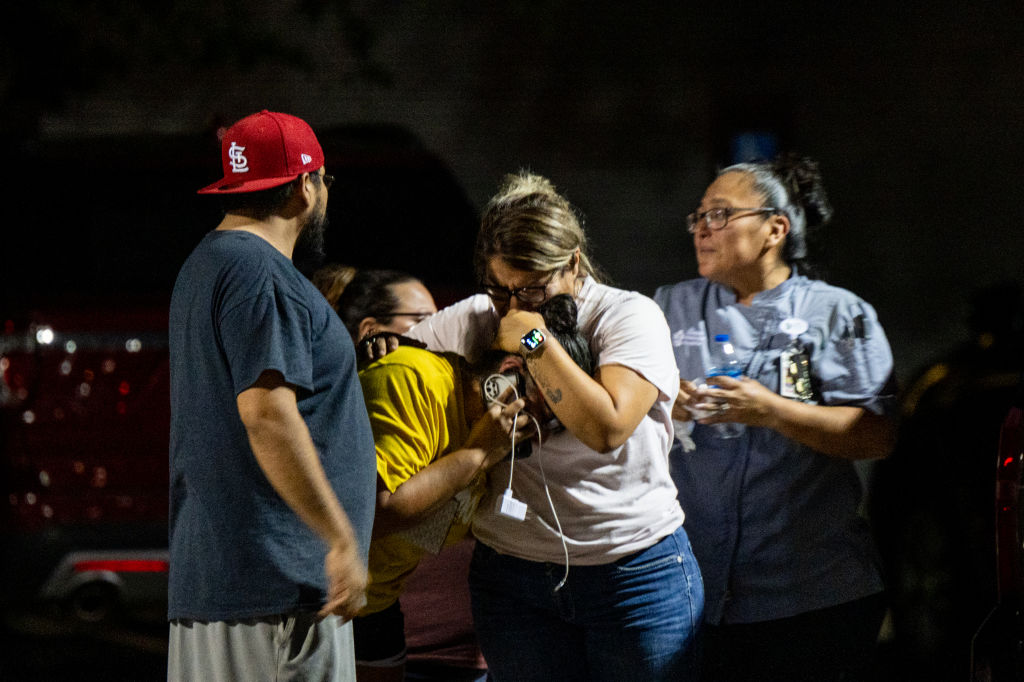
Tuesday was Footloose and Fancy Day at Robb Elementary. With just three days left of class, teachers at the Uvalde, Texas, school were trying to end the year on a fun note, inviting their 500 or so students to wear a nice outfit and dressy shoes. Today, the kids—in 2nd, 3rd, and 4th grade—were going to be allowed to wear flip-flops, because they were so “flippin’ excited for summer.”
At 11:43 a.m. that day, the school let parents know it was under lockdown due to gunshots in the area, but that “students and staff [were] safe in the building.” The next two updates—coming at 12:17 p.m. and 12:30 p.m.—alerted the community to an active shooter at the school and provided details on a makeshift “reunification site” where survivors could be picked up “once all [students were] accounted for.”
What happened in those harrowing 45 minutes changed hundreds of lives forever. Uvalde—a mostly Hispanic town of about 16,000, 85 miles west of San Antonio—will never be the same.
In the moments before the school’s first Facebook post, according to Texas Department of Public Safety officers and a briefing given to state Sen. John Whitmire, the 18-year-old gunman shot his own grandmother in the face, critically wounding her before racing to Robb Elementary, where he crashed the truck he was driving into a railing on school grounds. Various officials have issued contradictory information in recent days about what happened next, but a Department of Public Safety spokesman said the shooter engaged gunfire with a school security officer outside the building, as well as a few arriving police officers.
Making his way into the school through a back door, the shooter—armed with an AR-15-style rifle and wearing a tactical vest without body-armor plates—managed to barricade himself inside a 4th-grade classroom. Police were reportedly slow to enter the building, and by the time three Border Patrol agents from the agency’s elite BORTAC unit managed to reach him nearly an hour later, the gunman had murdered at least 19 children and two teachers, injuring countless others in the process. It’s not yet known whether the shooter was killed by the arriving officers or a self-inflicted wound. A handful of law enforcement officials were injured in their pursuit, but none critically.
As the immediate threat was eliminated, the school began evacuating students to the SSGT Willie de Leon Civic Center, a five-minute bus ride from Robb Elementary and a mile down the street from Uvalde Memorial Hospital. Families started gathering on the lawn outside the building in the early afternoon, hoping and praying their traumatized child was somewhere on the other side of the Civic Center walls. Officials took parents’ DNA samples one by one, testing them against the small, lifeless bodies that, in many instances, were too mutilated to identify. Some anxious families had to wait until 10 p.m. to be reunited; 19 families never will be again.
As is so often the case with massacres like these, investigators have quickly identified the perpetrator as a troubled young man. In interviews with the Washington Post, friends, neighbors, and cousins painted a picture of a boy who was bullied in school for his stutter and lisp, struggled to make and keep friends, and had a terrible relationship with his allegedly drug-addicted mother. One former friend said he would cut up his own face with a knife for “fun” and drive around with a BB gun shooting random people on the street; another recounted him being in multiple fistfights in school, noting he had essentially dropped out of school and was not on track to graduate with his classmates this month. The shooter—also Hispanic—had increasingly isolated himself from friends and family, and neighbors say police repeatedly showed up at his house the past few months to deal with altercations between him and his mother.
That sense of isolation is a common factor among perpetrators of such atrocities. “People who, either they finish school, or they get expelled, or they get suspended, it’s like the at-risk individual is no longer institution X’s or employer X’s responsibility,” said Adam Lankford, criminologist at the University of Alabama and leading scholar on the psychology of mass shootings in the United States. “Liability is such a motivator sometimes. When the person is no longer within the organization, people who are very invested in monitoring that case lose that investment. But it’s still society’s problem.”
The omens of what was to come became even more obvious in recent days, for those who were looking. After posting online about having rifles on his “wish list” a year ago, he reportedly purchased two, legally, from a federally licensed gun store earlier this month—just days after his 18th birthday. The Daily Dot reported an Instagram account allegedly belonging to the shooter—which has since been taken down by the platform—posted a picture of two rifles in recent days, and sent an acquaintance a screenshot of a receipt from a Georgia-based gun manufacturer that sells arms online. And on Wednesday, the New York Times spoke with a 15-year-old girl in Germany who had met the shooter two weeks earlier on the social media platform Yubo. “I just shot my grandma in her head,” he allegedly texted her. “Ima go shoot up a elementary school rn [right now].”
“The warning signs are [generally] so explicit,” Lankford told The Dispatch. “Nobody said after the Uvalde shooting, ‘Oh, I spent a lot of time with this guy in the last year, and I can’t believe he did this.’ And that’s often the case.”
The 2018 Parkland, Florida gunman, for example, routinely posted violent and threatening images, and his classmates later told investigators that, if there was ever going to be a shooting at Marjory Stoneman Douglas High School, they believed it would be him. The shooter behind last week’s racist attack in Buffalo explicitly told classmates he wanted to commit a murder/suicide after graduation. Similar warning signs were there in El Paso. And Thousand Oaks. And Pittsburgh. And Sutherland Springs. And Charleston. And Isla Vista. And Newtown. And Aurora. And Virginia Tech.
As after each of those previous atrocities, Washington is once again mired in the same intractable debate about what should be done to reduce the likelihood of future massacres—if anything at all. An FBI report released Monday found the number of “active shooter incidents” in the United States jumped to 61 in 2021 from 40 in 2020, but mass shootings like the one in Uvalde generally make up less than a quarter of a percent of firearm deaths in the United States in any given year. Suicides, by comparison, account for more than 60 percent of annual gun deaths.
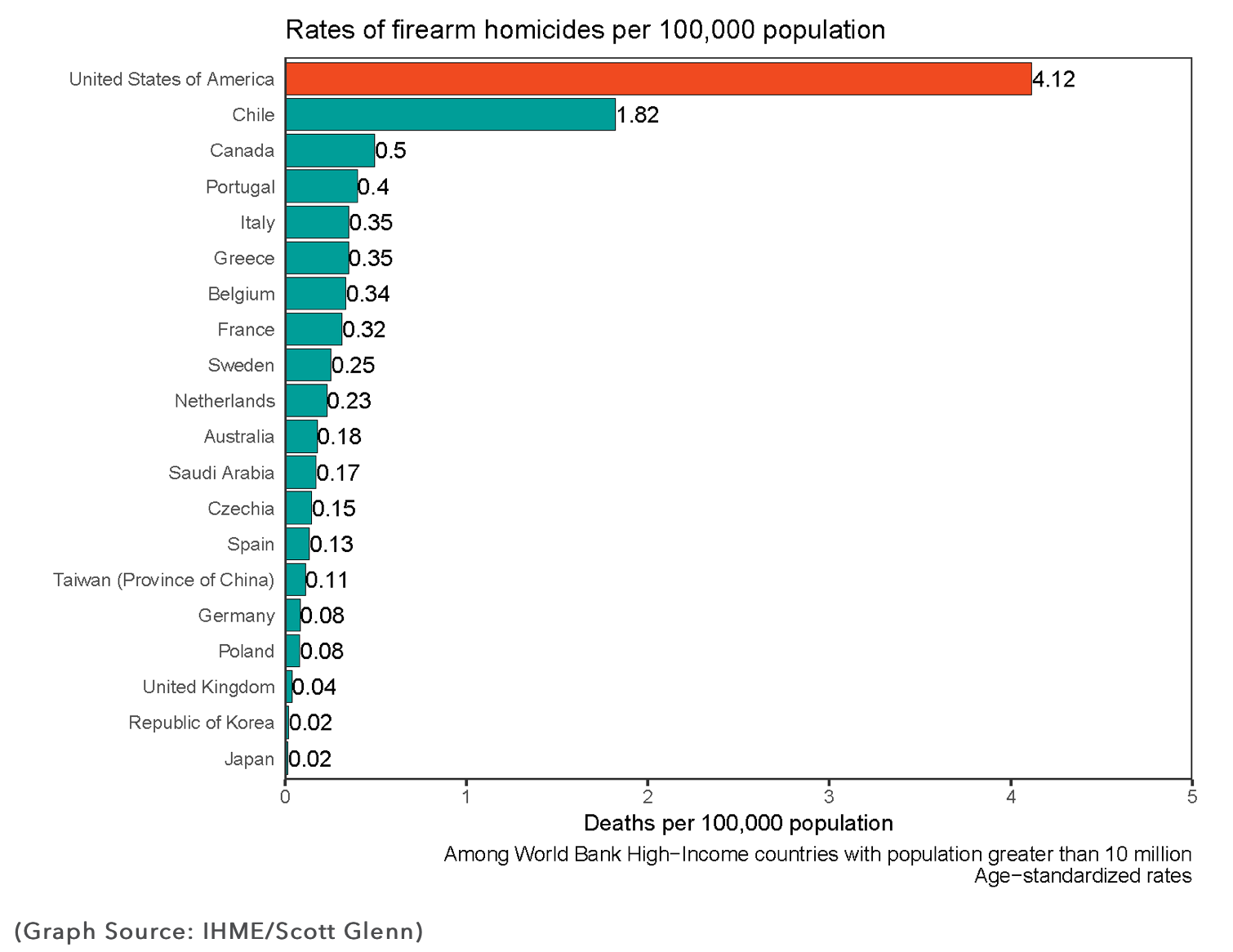
But the anomalous tragedies bring heightened attention to the United States’ broader gun violence problem—our 4.12 firearm homicides per 100,000 people ranked eighth out of 64 developed nations in 2019, and first among developed nations with more than 10 million people.
Democrats are once again attempting to channel the nation’s outrage into longer-lasting policy changes. “When in God’s name are we going to stand up to the gun lobby?” President Joe Biden asked in remarks Tuesday night, pushing Congress to pass unspecified “common sense” gun control laws. “When in God’s name will we do what we all know in our gut needs to be done?”
Senate Majority Leader Chuck Schumer initially planned to hold partisan show votes on two bills—previously passed in the House, but stalled in the Senate—that would require potential gun buyers on the internet and at gun shows to undergo criminal background checks, and increase their wait times if flagged for further investigation. But the New York Democrat relented, telling reporters the American people already know Republicans oppose the measures.
It’s unclear if the shooter’s social media posts or the police calls about domestic disturbances would have been flagged in an enhanced background check, but Schumer’s backtracking may have also been a small gesture of goodwill. A handful of Republican senators—Pat Toomey, Susan Collins, Mitt Romney, Kevin Cramer, Rick Scott, Roy Blunt, Rob Portman, Mike Braun—signaled openness on Wednesday to negotiations on some sort of red-flag law. Ten would need to break ranks to overcome a filibuster of any legislation, and the National Rifle Association—weakened by scandal and financial woes, but still a power player in Republican politics—would almost assuredly oppose it.
As David noted in Tuesday’s French Press, red-flag laws—which are already on the books in 19 states plus Washington, D.C., but unevenly enforced—allow police to temporarily confiscate a person’s weapons if a judge agrees he might be a threat to himself or others. Lankford, the criminologist, sees these kinds of seizures—which are subject to judicial review and can be appealed—as one of the more effective potential public policy interventions against mass shootings as well.
“If there’s anybody we could prevent from getting firearms, it should be the people who commit these kinds of crimes, because they’re so obvious about it,” he told The Dispatch, also advocating for child-access prevention laws that impose criminal liability on parents who negligently or recklessly provide their kids access to guns. “Having a gun in your closet, or in your vehicle, or on your hip doesn’t make people want to commit mass murder. The problem is, when people want to commit mass murder in the United States, then they can have that motive in their head, they can have exhibited all these warning signs, and then they can still go into a gun shop on their 18th birthday—as the Uvalde shooter did—and get firearms.”
A gun rights advocate might point out there are thousands—if not millions—of illegal firearms floating around in the country; a would-be gunman blocked by a red-flag law could acquire a firearm another way. In many instances that’s true, but Lankford argued it’s less so when it comes to mass shooters specifically.
“If you asked me, ‘How do we keep guns out of the hands of urban gangs,’ or ‘How do we keep guns out of the hands of the mafia, or drug traffickers,’ I’d say we’re not going to be able to do that. There’s too many guns in circulation, and they have black market connections—they’re professional criminals,” he said. “[But] these mass shooters are not professional criminals. They don’t have criminal connections, and frankly they’re often extremely socially awkward. … If you make it more difficult for people who find it difficult to do anything socially, then that makes a difference.” The Uvalde gunman, for example, appears to have waited until his 18th birthday to legally acquire a gun online.
We say “the Uvalde gunman”—just as we said “the Buffalo shooter” last week—intentionally. “There does seem to be a direct relationship between the fact that public mass shootings have become more deadly over time in the United States, and the fame and attention these perpetrators receive,” Lankford said. “We know that a number of perpetrators have specifically said that they want to kill large numbers of victims because they know that will get them more attention. So this media arrangement has created an exploitable and perverse incentive structure.”
“I’ve done a lot of research and I’ve advocated for not publishing the names and not publishing the photos of the perpetrators,” he continued. “You can get all the information about what happened yesterday and why it was so tragic to Americans and the world beyond without those specific details. The letters that make up this person’s name are not themselves valuable information. What his nose or face looks like is not itself valuable information. So I’d say focus on the valuable information.”
Worth Your Time
For NBC News, Suzy Khimm and Jon Schuppe detail how the Uvalde Consolidated Independent School District (UCISD) attempted to bolster its security plan in recent years, and how Tuesday’s atrocity happened anyway. “[UCISD] had doubled its security budget in recent years, according to public documents, in part to comply with state legislation passed in the wake of a 2018 school shooting in which eight students and two teachers were killed,” they write. “The district adopted an array of security measures that included its own police force, threat assessment teams at each school, a threat reporting system, social media monitoring software, fences around schools and a requirement that teachers lock their classroom doors, according to the security plan posted on the district’s website. It happened anyway. Somehow—the account provided by authorities is not entirely clear—a high school dropout with no known criminal history was able to evade a district officer outside Robb Elementary School on Tuesday and enter a back door armed with a rifle.”
In a piece published shortly after the race was called on Tuesday, Politico’s Alex Isenstadt details how Georgia Gov. Brian Kemp went “scorched-earth” and demolished a Trump-backed primary challenger. “While Trump and Perdue bet that Kemp’s refusal to intervene in the 2020 vote count would sink him with Republican voters still angry about Trump’s election loss, the governor outmaneuvered them by suffocating Perdue’s campaign before it could get any traction,” he writes. “By the time Perdue launched his campaign in December, he found that Kemp had used the levers of his office to rally the support of state power players and pass legislation that assuaged pro-Trump voters. Kemp had won the backing of many of Perdue’s former longtime advisers, making it difficult for Perdue to build a political operation. And the governor had spent months aggressively courting the former senator’s biggest donors, leaving Perdue financially devastated and demolishing his plans to establish a big-spending super PAC. Even Trump found himself struggling to make inroads in Georgia: He tried to persuade former football star Herschel Walker, who he is supporting in the Senate race, to come out in support of Perdue—to no avail. ‘Outside of Trump’s endorsement, it was a one-sided fight,’ said Tony Fabrizio, a Trump pollster who also worked for Perdue. ‘All Kemp.’”
GOP Rep. Liz Cheney addressed listeners in an 11-minute acceptance speech after receiving a John F. Kennedy Profile in Courage award on Sunday. “It is perhaps the greatest blessing of our nation that citizens in every generation have answered the call to defend our freedom,” she told her audience, sharing stories of a great-great grandfather who fought to defend the Union, before shifting her focus to the Jan. 6 attack on the Capitol and what happened when the House returned to the chamber at night after the attack. Cheney described standing in the Capitol’s Statuary Hall, surrounded by law enforcement in tactical gear, exhausted in the hours-long fight against “a mob of our own countrymen, attempting to stop the transition of presidential power.” The Wyoming representative concluded by calling on her audience to remember their ‘sacred’ civic duty: “In a republic, there are no bystanders … every one of us has a duty to set aside partisan battles and stand together to perpetuate and preserve our great republic.”
Presented Without Comment
Toeing the Company Line
On today’s episode of Advisory Opinions, David and Sarah discuss the Uvalde shooting and gun control options—including red flag laws—before turning to a new Second Amendment case. Plus: the Florida social media law and the election law affecting Pennsylvania’s Republican Senate primary.
The Biden administration has now flown multiple planes full of baby formula into the U.S. to alleviate the baby formula shortage caused, in part, by the Food and Drug Administration shutting down a possibly contaminated factory seemingly without any plan to address the resulting supply dip. Is the shortage capitalism’s fault, or the government’s? In Wednesday’s G-File, Jonah gets to that question by way of a Nazi legal philosopher, Enron, and the New Deal.
For more on Tuesday’s Republican primaries in Georgia and their implications for November, check out the latest episode of The Dispatch Podcast with Steve and Georgia-based conservative commentator Erick Erickson. Plus: Dispatch fact checker Khaya Himmelman drops by to discuss her latest piece on Dinesh D’Souza’s 2,000 Mules documentary alleging voter fraud in the 2020 election.
On the site today, Andrew Fink discusses Russian-media conspiracy theories about a cabal of bankers controlling the Western world, and Paul Matzko criticizes the new right’s growing willingness to wield state power against the rights of corporations that, they believe, are aiding and abetting the left.
Let Us Know
Even if mass shootings only account for about 0.2 percent of all firearm gun deaths in the U.S. every year, their indiscriminate preying on the innocent is particularly horrific, and it’s worth taking steps to reduce the likelihood the next would-be perpetrator is successful.
Do you think Congress has a role in making that happen, or is the scourge more a cultural problem than a policy one? Could it be a combination of both?
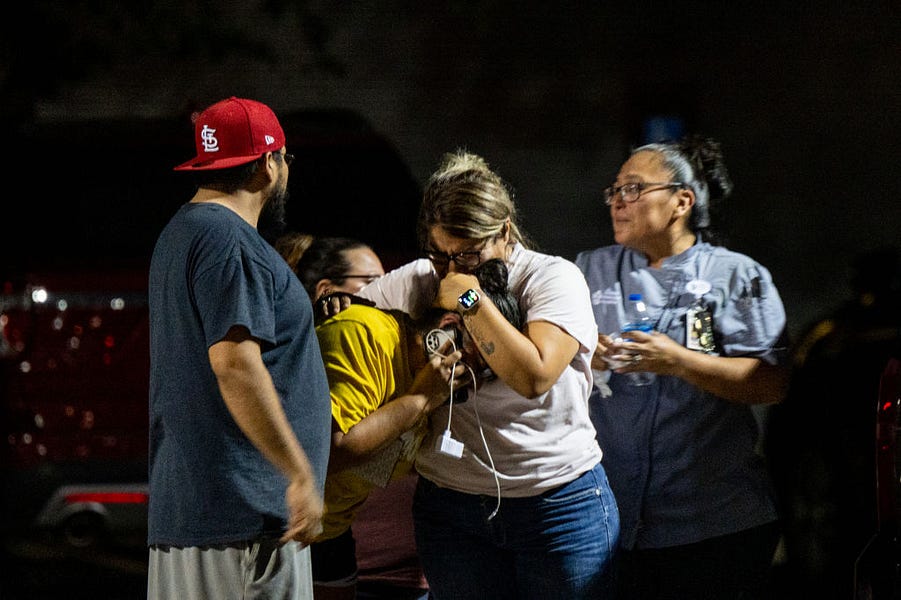




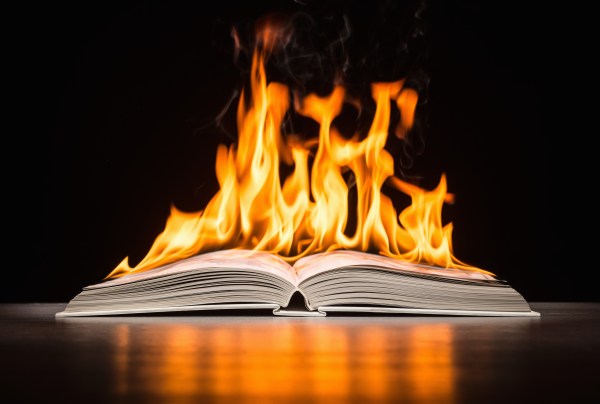
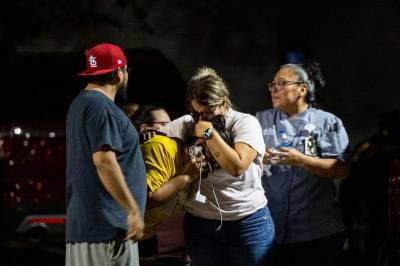
Please note that we at The Dispatch hold ourselves, our work, and our commenters to a higher standard than other places on the internet. We welcome comments that foster genuine debate or discussion—including comments critical of us or our work—but responses that include ad hominem attacks on fellow Dispatch members or are intended to stoke fear and anger may be moderated.
With your membership, you only have the ability to comment on The Morning Dispatch articles. Consider upgrading to join the conversation everywhere.